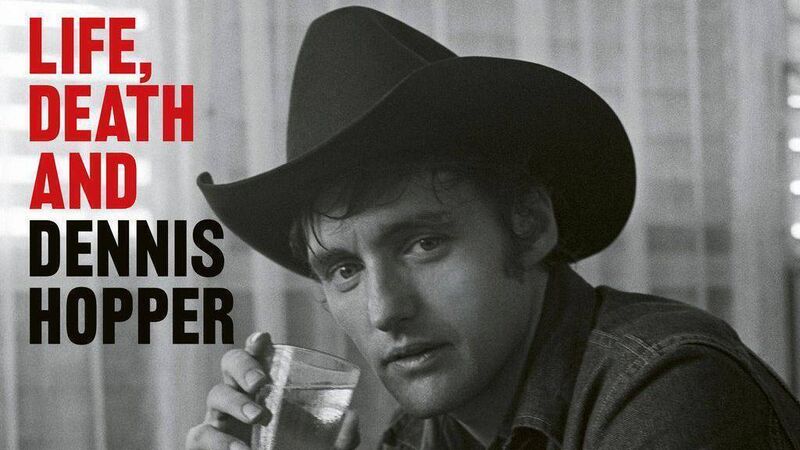Tom Dunne: As the Waterboys release a fine album, let's recall the five ages of Mike Scott

A detail from the cover of Life, Death, and Dennis Hopper, by The Waterboys.
In the Q&A section of a recent interview I did with Mike Scott at the Irish Film Institute, an audience member was in wry form. “Any truth, Mike,” he asked, “that they are going to erect a statue of you in Spiddal?” He was joking and we laughed heartily. But that said, I’ve heard worse ideas.
If there was to be a statue, it would be erected to commemorate the album. Its recording in Spiddal was the stuff of myth: a £250,000 SSL recording desk transported via truck on the worst roads in Europe; the use, some say, of 40% of all the quarter inch recording tape used in Ireland that year.
The Pogues had done their bit to rehabilitate trad-influenced Irish music but Scott’s take on the spirit that is inherent in that music, the poetic power and vision was crucial. We might now take Lankum et al for granted, but back then you had your work cut out selling trad to the cool kids.
helped change all that. But if you think this will be an article explaining how it did so, you’re wrong. The point is that that is just one of, I’d wager five, distinct phases in Mike Scott’s illustrious career. And the latest might be the best one yet.
The new album Life, is a riot. It is so unexpected, so different, so unique, so vibrant and so joyful. Words that could just as easily be ascribed to Hopper himself, the subject of the entire album. Yes readers, in 2025, Scott rekindles the lost art of the concept album.
Hopper is the coolest man in the Universe that you know very little about. You probably know the films – – but the friendships with Elvis and James Dean, his Andy Warhol-inspired art collection, the five wives and how he became the poster boy for the lost idealism of the 1960s? Not so much I’m guessing.
But what is fascinating is how Hopper’s career coincides with the arc of one as of the greatest periods of creativity in the history of mankind. When James Dean invented teenage rebellion in Hopper was his co- star, and years later when it all crashed and burned he was its defining iconic image.
Scott uses all of this to fashion an album of heady excitement and timeless class. He draws on the musical styles of the times that hints of Pink Floyd, The Beach Boys, and Burt Bacharach. Centre stage is Hopper in all his wild excitement. It is an absolute masterwork.
It might be my favourite ever Waterboys album and brings to five the distinct eras I can trace in their career.

Albums like and songs like and Music that was sweeping, grandiose and majestic. A mission statement.
It was Steve that inspired the curiosity in Irish music that led to a career reinvention like no other. Scott found a joy and a sorrow in Irish music that few people had tapped into so powerfully. Check out songs like and
A strange time for Scott, time spent in the Findhorn community, with Ireland, The Waterboys and a whole other life apparently in the rearview mirror. Suitably, understandably, and are bruised classics.
When 'Brother' Paul Brown, a Nashville-based music legend, joined The Waterboys in 2013 something shifted in Mike. It would take a longer article to explain what exactly, but listen to or and all will be apparent
I suppose for this to be a proper era there will need to more of it, but additional tracks are incoming, and you could package this with his previous concept piece if you so wished.
The point is more that it is yet another dramatic career departure for an artist who has never stood still. He has followed his muse wherever it took him, lapping so many of those he started out with that it is startling.
So, statue for Mr Scott? Not that bad an idea at all.


